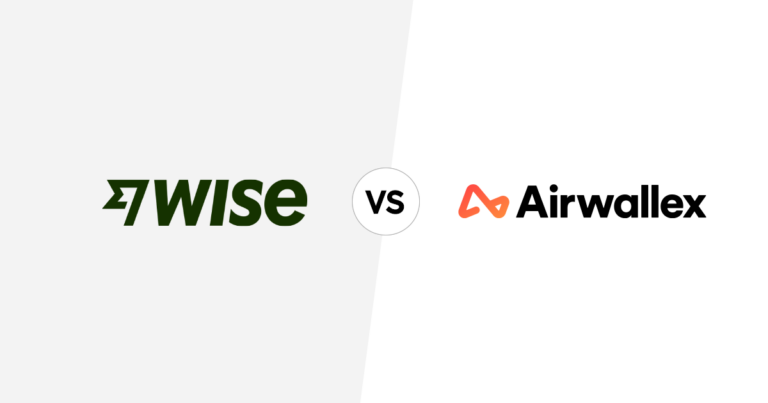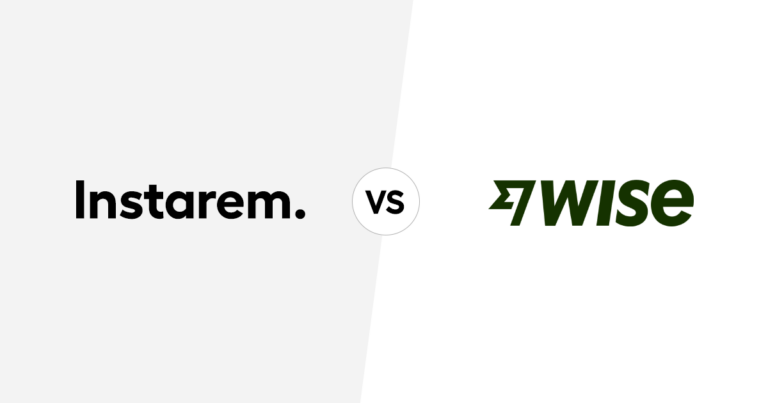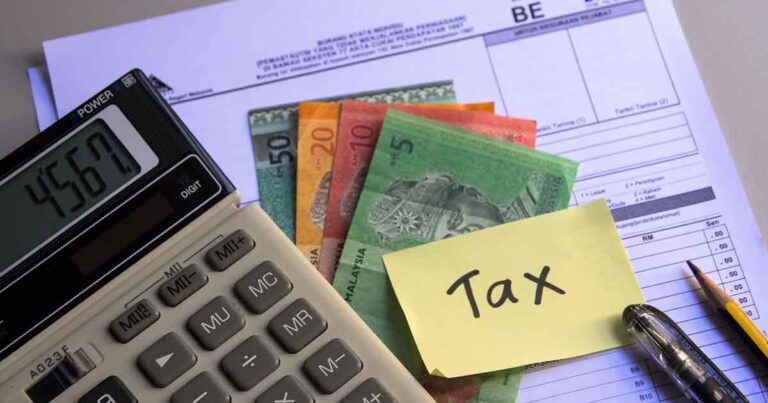Singapore import tax explained: GST, customs and duties

This article covers:
- Key Takeaways
- Why import tax matters for businesses in Singapore
- What is import tax in Singapore?
- Why Singapore charges import tax?
- Types of import taxes in Singapore
- How to Calculate Singapore Import Taxes
- Managing International Payments When Importing to Singapore
- Summary: Singapore import tax and cross-border payments
- Singapore import tax FAQs
Key Takeaways
- Imports to Singapore may be subject to Goods and Services Tax (GST) as well as customs and/or excise duties, depending on the type of goods.
- As of 1 January 2024, Singapore’s GST rate is 9%, applied to most imported goods unless specifically exempted.
- Dutiable goods—like liquor, tobacco, motor vehicles, petroleum products, and biodiesel blends—may incur additional customs or excise duties. These vary by product type.
- To calculate the exact duties, refer to the correct HS Code from Singapore Customs to avoid surprises.
- While taxes are unavoidable, high transfer fees aren’t. With Instarem’s global business account, you get low-cost transfers, competitive FX rates, and fast cross-border payments.
Why import tax matters for businesses in Singapore
Singapore offers one of the world’s most competitive and business-friendly environments, thanks to its open market, transparent regulations, and favourable trade policies. For importers, this creates a strong foundation for smooth, cross-border transactions.
That said, bringing goods into Singapore still comes with specific import tax requirements. These include Goods and Services Tax (GST) and customs and/or excise duties on certain products.
Whether you’re a small-scale trader or managing enterprise-level imports, understanding how Singapore’s import taxes work is key to staying compliant, avoiding delays, and managing costs effectively.
In this guide, we’ll break down the different types of import taxes, explain the relevant regulations, and show you how to calculate your charges—so you can bring goods into the country legally, efficiently, and with full confidence.
Let’s get into it.
What is import tax in Singapore?
Import tax is a tariff collected by customs authorities on goods entering the country. Importers must settle this payment before their products can legally clear customs. The amount depends on the value and classification of the goods.
In Singapore, most imported goods are subject to Goods and Services Tax (GST), with additional customs or excise duties applying to specific categories such as liquor, tobacco, and motor vehicles.
Why Singapore charges import tax?
There are a few key reasons why Singapore imposes import taxes on overseas goods.
First, taxes—including those collected from imports—are a major source of government revenue, accounting for over 70% of total revenue in fiscal year 2025.
Second, import taxes act as regulatory tools. They help control the flow and consumption of certain goods, especially those that may pose health, social, or environmental risks. Higher taxes on products like alcohol, tobacco, and environmentally harmful items are used to discourage excessive use and promote more responsible consumption.
Types of import taxes in Singapore
Import taxes in Singapore include Goods and Services Tax (GST), customs duties, and/or excise duties.
- GST applies to most imported goods unless they qualify for exemptions based on their value or nature.
- Customs and excise duties are only imposed on dutiable goods, such as liquor, tobacco, motor vehicles, and petroleum products.
For more detailed information, refer to the following resources:
Goods and Services Tax (GST)
GST is a broad-based consumption tax applied to both locally sourced and imported goods. For imports, GST applies to most overseas products, unless exempt under GST law—usually based on the value of the goods.
As of 1 January 2024, Singapore’s GST rate is 9%. To calculate the GST payable, you must refer to the CIF value of the goods—that is, the Cost, Insurance, and Freight. Any additional costs (even if not included on the invoice) are still considered part of the taxable value.
However, not all imports are taxed. Certain GST exemptions apply, provided your goods fall within specific limits or meet personal-use criteria.
GST Exemption Scenarios in Singapore:
- Duty-free limit for imported goods:
Goods delivered by post or air valued at SGD 400 or less may be exempt from GST. Note: Dutiable goods are not eligible for this exemption. - Personal items for non-commercial use (travellers):
- If you’ve spent 48 hours or more abroad, you can bring in goods worth up to SGD 500 tax-free.
- If your trip was less than 48 hours, the exemption drops to SGD 100.
- If you’ve spent 48 hours or more abroad, you can bring in goods worth up to SGD 500 tax-free.
Customs and/or Excise Taxes for Dutiable Products
In addition to GST, customs and/or excise duties apply to dutiable goods—typically items considered harmful or sensitive due to social, health, or environmental concerns. These tariffs are intended to discourage excessive consumption and promote more responsible usage.
There are four categories of dutiable goods that attract customs and/or excise duties in Singapore, including:
- Intoxicating liquors
- Tobacco products
- Motor vehicles
- Petroleum products and biodiesel blends
The additional duties for these goods are calculated using either a percentage of the shipment’s value (ad valorem) or a fixed amount based on weight, volume, or quantity.
While most dutiable goods are identifiable based on their physical characteristics, composition or intended use, some may still be ambiguous. This is why it’s important to refer to the Harmonised System (HS) code.
Using the HS Code Singapore Customs database, you can determine whether customs and/or excise taxes apply and how much tax you will need to pay.
How to Calculate Singapore Import Taxes
Calculating shipping tax for goods brought to Singapore should be a straightforward process. Here’s what you need to do:
- Identify if the items fall under the dutiable goods category: Check the HS Code and determine if the goods are subject to customs and/or excise duties.
- If applicable, calculate customs and/or excise duties: You can find the rates under the HS Code list of dutiable goods.
- Calculate Goods and Services Tax (GST): If you’re importing dutiable goods, add the CIF value to any calculated customs duty. If not, calculate GST based on the CIF value alone.
To better understand the process, take a look at these examples:
Importing dutiable goods
You’re importing goods with a CIF value of SGD 2,000. The customs duty rate is 5%, and the GST rate is 9%.
- Calculate customs duty: 2,000 × 0.05 = 100
- Calculate GST: (2,000 + 100) × 0.09 = 189
- Total taxes payable: SGD 289
Importing non-dutiable goods
You’re importing goods with the same CIF value of SGD 2,000, but no customs duty applies. GST is calculated as:
- 2,000 × 0.09 = 180
- Total taxes payable: SGD 180
Managing International Payments When Importing to Singapore
Navigating import taxes is just one part of the equation. Whether you’re a small importer or managing enterprise-level logistics, cross-border payments are a constant reality—from paying overseas suppliers to settling invoices with freight forwarders and clearing agents.
To streamline these transactions, it’s essential to use a reliable payment service—one that supports multiple currencies and countries, enables bulk payments, processes transactions quickly, and offers competitive exchange rates with low fees.
Still, many businesses stick to traditional payment methods out of habit. While not necessarily wrong, this can mean higher costs and slower processes. Switching to a modern business money transfer service can offer faster, simpler, and more cost-effective cross-border payments—helping your operations run more efficiently.
Challenges with Traditional Payment Methods
Traditional payment methods—like bank wire transfers—are still the go-to for many importers and logistics businesses. But if you’re aiming for faster, smoother, and more cost-efficient cross-border transactions, these methods can pose some real drawbacks.
Here are a few common challenges importers face with traditional payment systems:
High fees
The first challenge that may occur is high transaction fees. Many traditional banks charge significant fees for international wire transfers, not to mention exchange rates that are often unfavourable, which can easily add up to significant overhead in the long run.
If you frequently send money overseas – whether to suppliers, freight forwarders, or clearing agents – these fees can slowly eat into your profit margins, which could be better used to improve operations or support other business priorities.
Unfavourable Exchange Rates
Traditional banks often have less competitive exchange rates, which could easily be an issue if cost-efficiency is what you’re looking for. The exchange rates these banks offer are often way higher than the mid-market rate – or the rate between two currencies that you see on Google.
With exchange rate markups, you’ll be paying more than you should. This can add up quickly if you frequently deal with multiple currencies at the same time to settle your international transactions.
Often Long Processing Time
With traditional payment methods, international transfers can take several business days to settle. These delays can become problematic when timely payments are needed for suppliers, customs clearance, or shipment releases.
In some cases, delayed payments may even disrupt supply chain schedules or lead to additional storage and demurrage fees. For businesses that rely on fast and efficient operations, such processing times can create unnecessary risks and added costs.
Smarter Move for Your International Payments with Instarem
Understanding the limitations of traditional payment methods, it makes sense to explore more efficient and cost-effective alternatives, especially for importers and logistics businesses managing frequent international transactions.
Business money transfer solutions like Instarem offer a smarter way to pay. With low fees, competitive exchange rates, and reliable transfer speeds, you can streamline your cross-border payments without the hidden costs and delays that come with traditional banks.
Summary: Singapore import tax and cross-border payments
Navigating Singapore’s import taxes can feel daunting for those new to international trade. But thanks to transparent regulations and favourable trade policies, the process is more straightforward than it seems. Requirements are clearly outlined, and reliable guidance is available through official customs channels.
That said, understanding import tariffs is just one part of the equation. Businesses also need to manage cross-border payments efficiently. While many still rely on traditional methods, they may be missing out on the speed, savings, and simplicity that modern solutions like Instarem bring to the table.
With Instarem, you get low transaction fees, competitive exchange rates, and faster payment processing—so you can focus on growth, not paperwork.
Ready to simplify your international payments? Sign up and create your global business account today.
Singapore import tax FAQs
Is there GST on import services in Singapore?
Yes, as of 1 January 2023, GST applies to digital and non-digital services from overseas providers. Digital services include downloadable digital content, subscription-based media, software programmes, and other similar products. While non-digital services range from professional and personal to educational services.
What is the GST rate for imports?
The current GST rate for imports in Singapore is 9%, effective as of 1 January 2024.
How to calculate import GST in Singapore?
GST for imported goods is calculated based on the CIF value (cost, insurance, and freight), plus any applicable customs duties. The formula is:
GST = (CIF value + Customs Duty, if applicable) × 9%
How to pay import tax in Singapore?
To pay import tax in Singapore, you have two main options:
- Use your Inter-Bank GIRO (IBG) linked to Singapore Customs
- Appoint a Declaring Agent to handle the payment on your behalf. In this case, the tax amount is deducted directly from the agent’s IBG account.
Do I need to pay GST on online shopping orders shipped to Singapore?
Yes. Since 1 January 2023, GST applies to most low-value goods bought online, even if they cost under SGD 400.
Marketplaces like Amazon, Shopee, ASOS or Temu typically collect GST at checkout.
If GST is not collected during purchase, Singapore Customs may charge GST when the goods arrive.
Dutiable goods (alcohol, tobacco, motor vehicles, petroleum products) always incur GST + excise/customs duty, regardless of value.
Are all imports into Singapore taxed?
Most goods are subject to 9% GST, but only a small set of “dutiable goods” attract additional duties.
- General consumer goods: GST only
- Dutiable goods: GST + Customs/Excise duty
- Goods under SGD 400 (air/post): May be GST-exempt, unless dutiable
- Personal traveller allowances: Only apply to travellers entering Singapore, not shipments
So yes — almost all imports incur at least GST, unless specifically exempt.
For full details, refer to the ‘Paying Duty and GST’ guide from Singapore Customs.
















